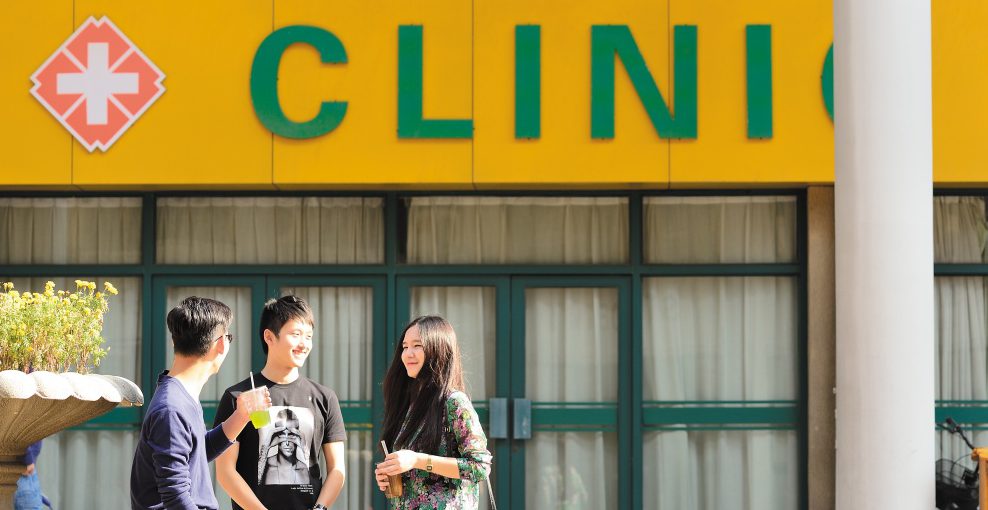
April 2, 2014, by Beth Dawson
Finalist Careers Clinic
By Pablo Costa and Peter Kay, Careers Advisers, Careers and Employability Service
Your focus is now on your dissertation and final exams, but at the back of your mind you may have questions about what you’re going to do afterwards.
Our finalist careers clinic offers a prescription of regular installments of frequently asked questions and expert advice from our careers advisers, in the lead up to graduation.
Is it too late to apply for graduate positions?
The answer is no! Whatever type of graduate role you’re interested in, vacancies are being advertised all the time.
Many companies are not in a position to recruit large numbers of graduates, instead advertising one or two opportunities a year. Some employers will only recruit a graduate when a member of staff leaves or a new project starts while others will advertise roles that do not require a degree, but the skills and experience you’ve gained during your course may benefit you in the role and when applying.
To track down these opportunities, use a range of sources of vacancies such as My Career, our online vacancy service; local and national newspapers and websites; recruitment agencies and job agencies through professional bodies.
For graduate schemes, the traditional application deadline period is December to January, but this isn’t the whole picture. Closing dates vary dramatically between sectors with the hospitality, engineering, science, marketing, public services and retail sectors still looking for graduates. In recent years, organisations have realised that recruiting after the traditional closing date period gives them access to more students. Some large multinational companies recruit graduates all year round, as they need an endless supply of talent.
A number of employers re-open their schemes because they have not had enough candidates or a number have dropped out. If they like what they see on your CV, they could even extend the number of people they wish to bring in.
Both large multinational firms and local companies with graduate vacancies for 2018, will be at our Graduate Jobs Fair on Monday 11 June. You’ll have the chance to speak with employers from a range of sectors, so be sure to bring an up-to-date CV.
How do I figure out what I want to do?
“I know what I don’t want to do” is a common starting point for most people when asked what they want to do. Therein lies the problem, it’s easy to focus on the negatives: what you don’t like, what you’re less confident about or jobs you cannot see yourself doing.
Turning these ideas into positives is necessary if you want to find something that you’d really like to do and feel enthusiastic about.
So, “what do I want to do?” The question you’re asking yourself isn’t helpful, you’re likely to look for answers you find familiar and it suggests an end point or final destination – your career is just beginning. Here are some steps that can help you to get a better idea of what you want to do:
1. Accept you’re undecided, rather than out of ideas
Being undecided is a more positive stance as it allows you to be open to new ideas, suggestions and influences. It also gives you permission to step outside your comfort zone.
2. Focus on yourself
What matters to you? Think about your interests, qualities and skills and explore how these could be turned into career ideas by researching and networking with those involved in such areas.
3. Research sectors and look at organisations and the roles within them
You can then begin to see what is possible and where you can fit in, and importantly how to deal with the application process and convincing recruiters that you’re the person for the job.
4. Decide when you want to apply for opportunities
Prioritise the next few months and plan what is possible with final exams looming or your dissertation to complete. Take control and be persistent in focusing on what you want to achieve. If you decide to do this after exams, think of it as a positive step, not fatalistic.
5. Talk to a careers adviser
We can discuss your ideas and help you figure out what you want to do. Things change, but being establishing your ambitions is important for achievement.
If you want more advice about any of the topics covered in this blog, you can book an appointment with a careers adviser through My Career. You can also find lots of resources for 2018 graduates here.
Next Post
Online Q&A round-up part 4No comments yet, fill out a comment to be the first

Leave a Reply